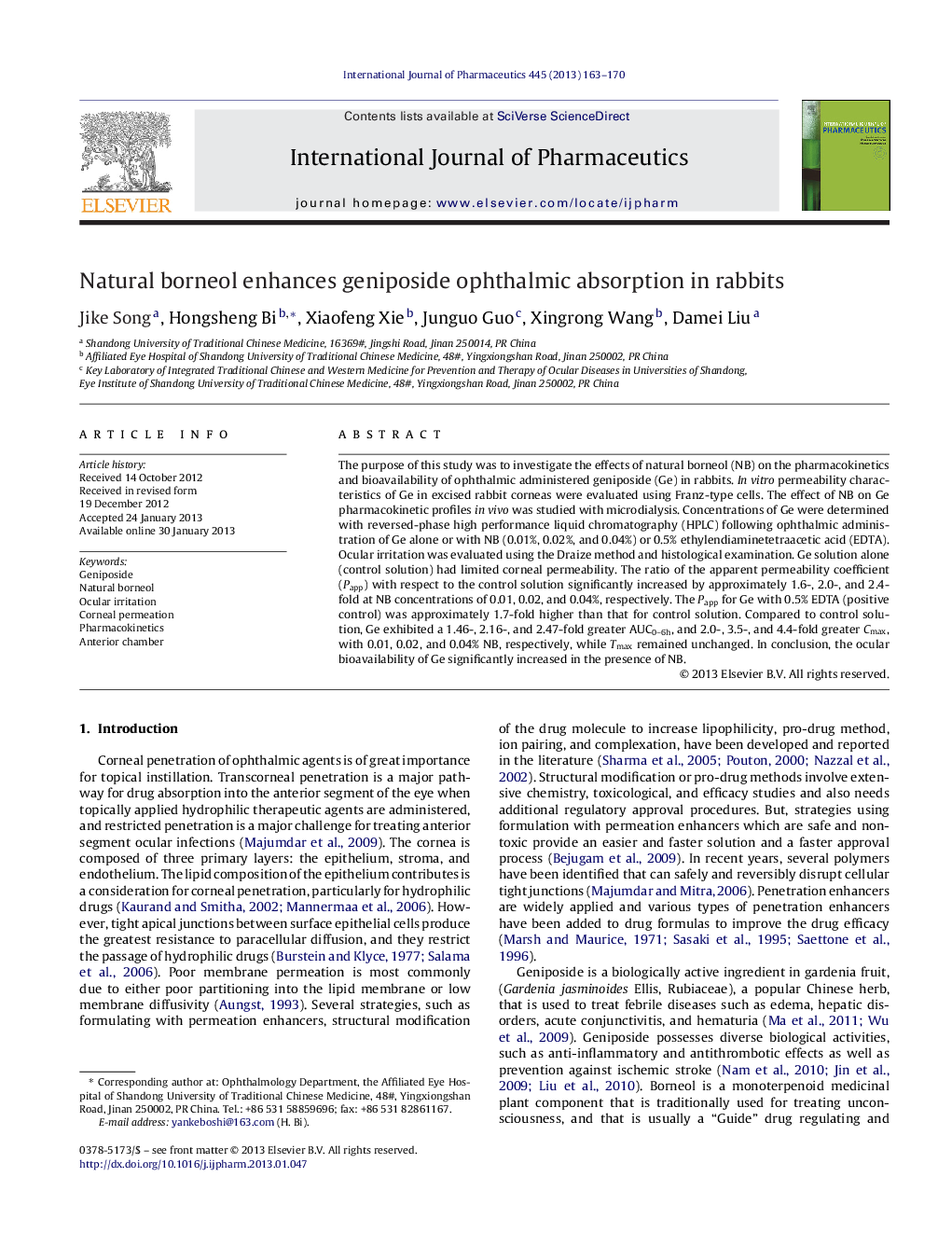| Article ID | Journal | Published Year | Pages | File Type |
|---|---|---|---|---|
| 2502650 | International Journal of Pharmaceutics | 2013 | 8 Pages |
The purpose of this study was to investigate the effects of natural borneol (NB) on the pharmacokinetics and bioavailability of ophthalmic administered geniposide (Ge) in rabbits. In vitro permeability characteristics of Ge in excised rabbit corneas were evaluated using Franz-type cells. The effect of NB on Ge pharmacokinetic profiles in vivo was studied with microdialysis. Concentrations of Ge were determined with reversed-phase high performance liquid chromatography (HPLC) following ophthalmic administration of Ge alone or with NB (0.01%, 0.02%, and 0.04%) or 0.5% ethylendiaminetetraacetic acid (EDTA). Ocular irritation was evaluated using the Draize method and histological examination. Ge solution alone (control solution) had limited corneal permeability. The ratio of the apparent permeability coefficient (Papp) with respect to the control solution significantly increased by approximately 1.6-, 2.0-, and 2.4-fold at NB concentrations of 0.01, 0.02, and 0.04%, respectively. The Papp for Ge with 0.5% EDTA (positive control) was approximately 1.7-fold higher than that for control solution. Compared to control solution, Ge exhibited a 1.46-, 2.16-, and 2.47-fold greater AUC0–6h, and 2.0-, 3.5-, and 4.4-fold greater Cmax, with 0.01, 0.02, and 0.04% NB, respectively, while Tmax remained unchanged. In conclusion, the ocular bioavailability of Ge significantly increased in the presence of NB.
Graphical abstractFigure optionsDownload full-size imageDownload high-quality image (97 K)Download as PowerPoint slide
